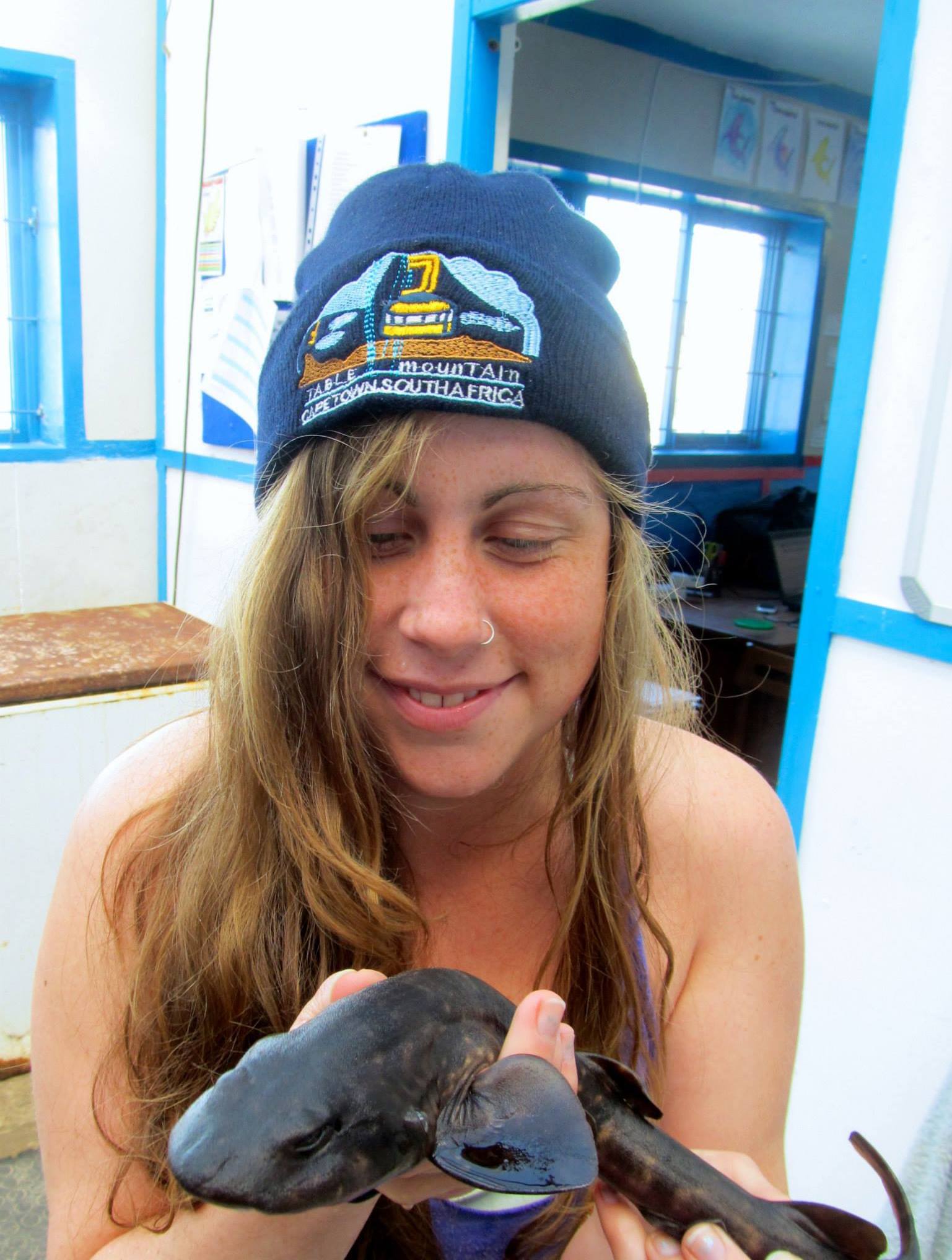 When Madeline was five years old she used to write poems about sharks with her mother, who was an English literature student at the time. Her mother typed as Madeline rapidly dictated shark facts in a manner she deemed satisfactorily poetic. For everyone’s benefit these poems have remained in storage but these exercises, together with her awe of Rachel Carson, Sylvia Earle, and Eugenie Clark helped foster Madeline’s early desire to be a marine biologist.
When Madeline was five years old she used to write poems about sharks with her mother, who was an English literature student at the time. Her mother typed as Madeline rapidly dictated shark facts in a manner she deemed satisfactorily poetic. For everyone’s benefit these poems have remained in storage but these exercises, together with her awe of Rachel Carson, Sylvia Earle, and Eugenie Clark helped foster Madeline’s early desire to be a marine biologist.
Following a gap year of backpacking in Europe and India, Madeline moved from landlocked Calgary, Alberta to Dalhousie University in Halifax, Nova Scotia. In Halifax she studied Marine Biology and Sustainability. She conducted research in her final year in Dr. Tamara Romanuk’s food web ecology lab. Her honours project investigated the stability of aquatic food webs under the pressure of global warming and ocean acidification.
This research experience combined with her fascination of sharks led Madeline to South Africa, where she attended the Sharks International 2015 conference in Durban before working at the South African Shark Conservancy in Hermanus. Living and working at this research facility was a dream – she conducted research, both in the lab and field, and dived with gorgeous endemic sharks in thick kelp forests every day.
When she returned to Canada, Madeline worked for a year at the Bedford Institute of Oceanography in Halifax, in Dr. Ellen Kenchington’s deep sea benthic ecology lab. This work was her introduction to ecological research used to inform fisheries management. A highlight of this full year was an offshore research cruise where she had the opportunity to collect deep sea photos, videos, and organisms in the North Atlantic high seas.
Madeline has come to the Sea Around Us to investigate the incidental catch, termed bycatch, of shark, skates, and rays worldwide. About a quarter of these fishes are threatened with extinction and the primary cause is thought to be overfishing. Specifically, Madeline is interested in which fishery characteristics, such as gear type, affect bycatch patterns and what impacts overfishing has on ecosystems and fisheries.

